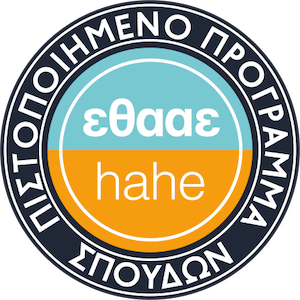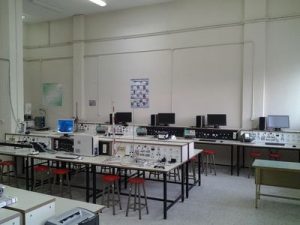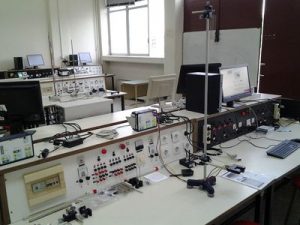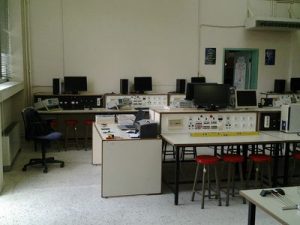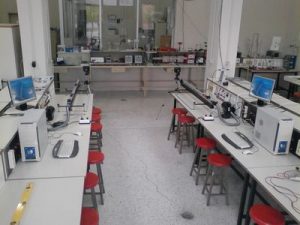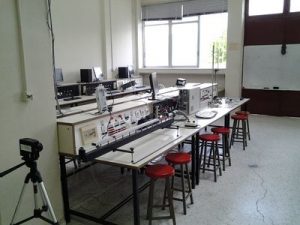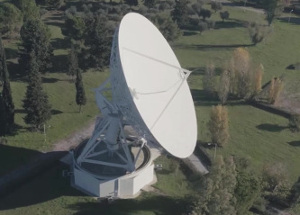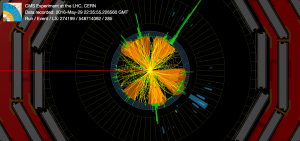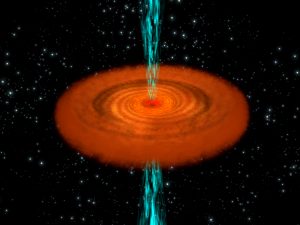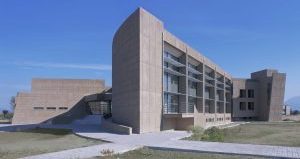
The Department of Physics of the University of Thessaly was established in 2019 and is located in the city of Lamia. It is part of the School of Sciences of the University of Thessaly.
The first students were admitted in September of 2019.
The Curriculum aims to enable the Physics Department graduates to follow a future professional path based on their specific interests and talents. It also aims to provide the necessary knowledge for its graduates to work in evolving disciplines in the international scientific field, which, in addition, are of particular technological interest. There are four areas offering specializations in:
- Theoretical Physics and Astrophysics
- Nuclear Physics, Particle Physics, and Physics of Plasma
- Condensed Matter Physics
- Applied Physics-Electronic Physics
The aforementioned are cutting-edge areas and in combination with appropriate postgraduate studies can provide employment opportunities in a variety of fields (Astrophysics, Nuclear Physics, Elementary Particle Physics, Physics of Plasma, Space Physics, Telecommunications, , Simulation of Physical Phenomena, Computational Science, Quantum Computing, Lasers, Materials Science ), in research centers in Greece and abroad, international organizations, state-of-the-art technology companies, start-ups and more.
Furthermore, the curriculum is designed in a way to promote partnerships with other Departments of the University as well as institutions and organizations both in Greece and abroad (i.e. CERN or other International Educational and Research Institutions). The Department has already established such educational and research collaborations through MOUs.
In addition to the above study areas, the curriculum is also designed in a way to allow graduates to acquire the necessary competences, thus, preparing those who wish to enter the employment market upon graduation.
Besides the scientific knowledge, the curriculum offers graduates the opportunity to develop a series of skills such as:
- Ability to analyze data and detect the most important parameters
- Ability to investigate quantitative relationships between the parameters of a given problem/case study
- Familiarity with the use of advanced mathematical and computational tools
- Ability to present their results to a scientific and general audience
- Familiarity with the use of ICT in research and teaching of Natural Sciences
- Familiarity with team work and collaboration

